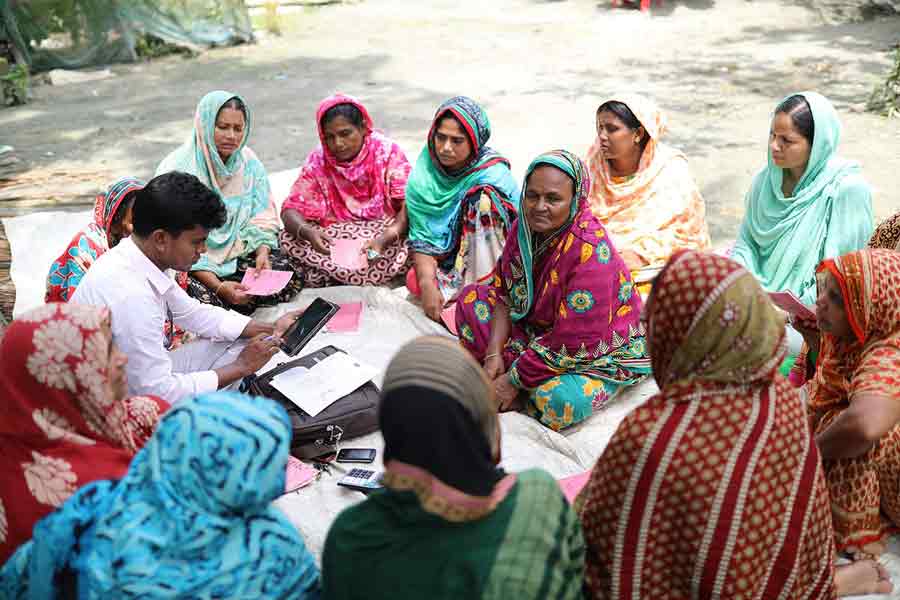
Published :
Updated :

The presence of a large number of unbanked people in a country is indicative of their little or no financial inclusivity. They either have no regular income or if they have, it is too paltry for saving in a bank account. The World Bank's Global Findex Database has been focusing on financial inclusion of people all across the world since 2011. The purpose is to track how people in different countries access, use and interact with financial services starting from digital payments to borrowing, saving and account ownership. This year's Global Findex report highlights regional disparity as well as yawning gaps within segments of society including gender discrepancy. It is indeed a poor commentary on Asia and some countries in Africa that more than half of the world's adults have no financial accounts and they are concentrated in just eight countries of those regions.
Well, two most populous countries India and China find themselves in the bracket of those eight countries. So do Bangladesh, Pakistan and Indonesia ---all of which have quite large populations after India and China. Egypt and Nigeria from Africa and Mexico from North America complete the list. What is significant here is that these economies are large with China and India leading the pack not only in size but also in their economic growth. When just eight countries are home to 53 per cent of the world's total unbanked people, it suggests some problem with not just social discrimination on the fringe but also maldistribution of wealth and financial services. Of course, in countries like Bangladesh, where informal economy governed by black money or unaccounted-for economy is thought to be larger than the formal, the transactions often remain traceless. Question does not arise about the marginal and poor people holding bank accounts.
So, it is clear that economy can be large and yet backward unless financial inclusion expands to the maximum number of people. This is further highlighted by the fact that some people in Bangladesh suspect of income from dubious sources maintain 30 to 40 accounts with banks. The Anti-Corruption Commission has found a large number of such people whose bank accounts have been frozen. On the other hand, it certainly is a problem with the majority of market economy where a large number of people find themselves unemployed or they earn only a pittance leaving no margin for saving.
Sure enough, financial literacy for maintaining bank accounts or digital transactions is a must. That 78 per cent account holders in Bangladesh still make digital payments is quite satisfying. Credit certainly goes to financial services like bKash which have significant penetration in rural areas. Village people can now avail of the opportunity to receive remittance at home. But still the economy of not only Bangladesh but also those of the South Asian nations have a long way to go before they reach a stage where financial inclusion will be on a par with that of modern economies. The number one challenge is to digitise the economy to such an extent where informal or black economy finds no space for operation. This done, the income of the exchequer will also rise to a reasonable level eliminating the need for making deficit budgets.


 For all latest news, follow The Financial Express Google News channel.
For all latest news, follow The Financial Express Google News channel.